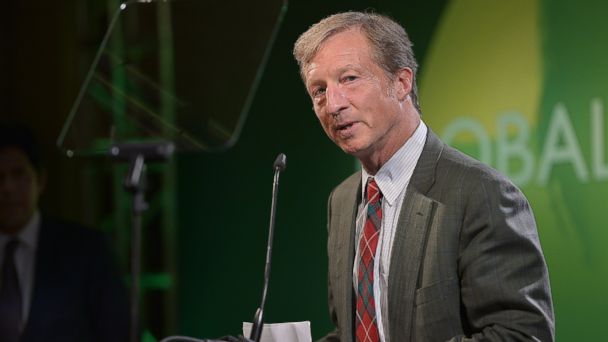Billionaire Environmentalist Tom Steyer Won't 'Tea Party' Dems in 2014

(Charley Gallay/Getty Images)
Democrats' favorite wealthy political donor, environmentalist Tom Steyer, is ready to play hardball in the 2014 elections.
But an adviser for Steyer's super PAC Next Gen Climate Action, which has committed to spending more than $100 million in a climate change ad campaign this year, said they don't plan to attack Democrats in tough races who disagree with their environmentalist agenda.
"We're certainly not subscribing to what I would call the tea party theory of politics," said the group's senior adviser Chris Lehane on a conference call with reporters today. "The tea party has spent a considerable amount of time involving themselves in races where they effectively go out and take out a candidate."
"We do think it's really, really, really important from a climate perspective that we maintain control of the Senate for Democrats," he added.
So Sen. Mary Landrieu, D-La., you're in luck.
That doesn't mean that they'll stay out of races like Landrieu's, where she has been outspoken in her support for the Keystone XL pipeline, an oil sands project that would bring unrefined oil from Canada to the U.S., which the environmental community strongly opposes.
Though they haven't committed to doing anything in Landrieu's race yet, Lehane said that ad campaigns may not be negative but they could potentially prod voters to push Democratic candidates toward an anti-Keystone platform.
As for all that money, Steyer's commitment of at least $50 million from his own pockets and $50 million from like-minded people (who are also likely to be very wealthy), is a much needed helping hand for Democrats who are facing an uphill battle to hold on to the Senate and stop any hemorrhaging of seats in the House.
But it runs counter to their multi-year campaign against big-dollar super PACs, which they say have an out-sized influence in political elections.
Lehane framed Steyer's involvement as a counterpoint to spending by the fossil fuel industry and other people who he said are motivated by "economic self-interest."
"What Tom is spending by any objective analysis is a very small drop in a very large oil bucket of money that has been spent on the other side," Lehane said.